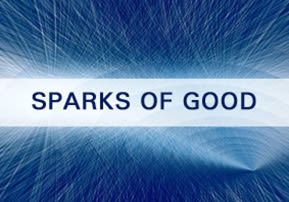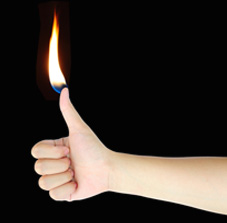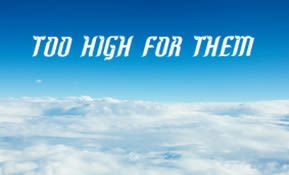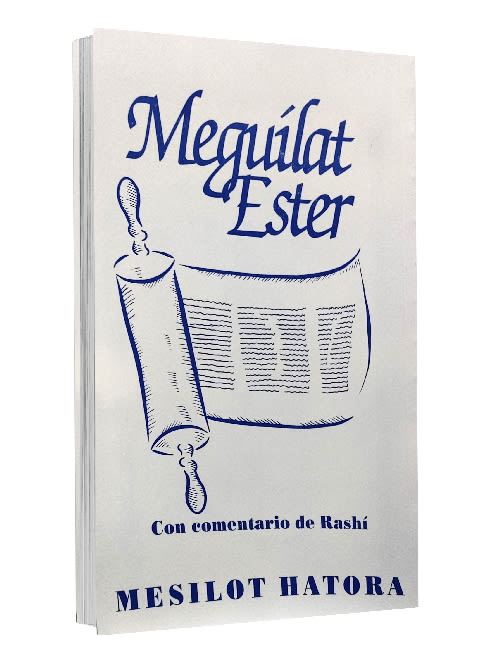
Vayishlach: Sparks of Good
There are sparks of holiness in different situations and places which need to be "converted", brought back to a source of holiness...

Parshat Vayishlach
There is an important rule for understanding the situations the Torah mentions, i.e. what Hashem wants to teach us. The rule is: the more attention the Torah gives to a certain subject, the more significant it is. This foundation is essential to realize the importance of this week's Parsha which speaks extensively about the struggles between Jacob and Esau.
We are told about their planned encounter after many years of separation, about Jacob's wrestling with someone identified by our Sages as the Angel of Esau, and finally the actual meeting and the lengthy dialogue that ensue. What needs clarification is if Esau was, in fact, an evil person to be avoided, why was it necessary to give so much attention to the struggles between him and his brother Jacob. Is there something more to this seemingly evil individual?
The opening verse of the Parsha states that Jacob sent messengers to "Esau, his brother" to tell him he was returning home after many years in Laban's house. The messengers return with a sobering message. "We came to your brother, to Esau, and he is coming towards you with four hundred men." Rashi notes the  apparent repetition of "to your brother, to Esau". He explains that you, Jacob, called him "my brother" but, in fact, he is still dealing with you as the evil Esau.
apparent repetition of "to your brother, to Esau". He explains that you, Jacob, called him "my brother" but, in fact, he is still dealing with you as the evil Esau.
It appears from Rashi that Esau has two titles, one as "Esau" and the other as "Jacob's brother". It appears these two titles represent two aspects of Esau. When he is called "Esau" this refers to the wicked individual he had showed himself to be, but when he is referred to as "Jacob's brother", it seems that he is being put in a more positive light.
Using this understanding of the two terms "Esau" and "his brother" let us jump ahead to the actual reunion of the brothers. As they are about to meet the verse relates, "And he (Jacob) went in front of his family and bowed to the ground seven times until he reached his brother". During this historic meeting Jacob was able to reach the "brother" in Esau.
This has tremendous significance to our understanding of the story. There are two Esau's that Jacob needs to contend with. There is the wicked "Esau" who wants to kill Jacob for "stealing" the blessings. There is also another Esau called "Jacob's brother". Buried deep in that same individual is undeniable good. If not, Jacob wouldn't have extended himself so much to reach "his brother". So it could be that Esau is not all wicked and Jacob was willing to expend much energy to reach that better side.
What was Esau's response to Jacob's good will?
Esau was moved by seeing Jacob and his family and, in turn, he ran towards Jacob, hugged him, fell on his neck, kissed him and they cried together. Rashi quotes two differing opinions of our Sages whether Esau kissed Jacob with a full heart or not. It would appear that Jacob's tremendous efforts paid off, at least to some degree.
There is a very important lesson in this story that has great significance for us today. In short, Jacob sees that there is some good in Esau. He understands that he can't ignore that untouched spiritual potential. The person the Chumash calls "Esau" is an enemy and needs to be wrestled with and vanquished but, when subdued, there is holiness hidden within "his brother".
Today we find ourselves in a world greatly effected by Esau's descendants. Present Western civilization is largely based on Esau's offspring. Based on our understanding of the struggles between Jacob and Esau, there are two levels we need to relate to in the world of Esau today. There are still plenty of "Esaus" in society. They are the individuals and groups who overtly or covertly express their hatred towards the Jewish people and what they stand for. But there is another significant population that is the "Jacob's brother" of today's world. They show a concern and caring for the Jewish people and there are undoubtedly individuals and groups who have within them sparks of goodness that need to be extracted and utilized.
The final encounter of Jacob and Esau is in this week's Parsha. Esau kissed Jacob and, as I once heard, this signifies this present time period. Esau's children are showing love to Jacob's. Sometimes their sincerity is questionable, but there is some awakening, some change of heart. It is the final meeting of Esau's and Jacob's descendants before the coming of Meshiach.
One final question. How do we go about finding these hidden sparks in today's world of Esau? First we should know that it is a very dangerous road to try to find the latent good without being sucked into the evil of Esau. In general this is the domain of the greatest tzadikim (righteous) of the generation. On the other hand the Talmud tells us the reason we went into exile was in order to find and extract the converts that are there.
Besides the simple explanation of that Talmudic statement, the Chassidic masters teach us that there are sparks of holiness in different situations and places which need to be "converted", brought back to a source of holiness. However, according to the great Kabbalist the Ohr HaChayim, we can save ourselves a lot of travelling to "gather the sparks". He taught us that if we, the Jewish people, become a true source of holiness and light ourselves in the land of Israel, we will act like a magnet for scattered sparks within Esau and elsewhere. Then we won't have to go out to retrieve the holiness, instead it would come to the Jews in the Holy Land. Such an incredible flow of goodness and holiness will surely be a sign the Meshiach is soon to come, may we see him speedily in our days.






